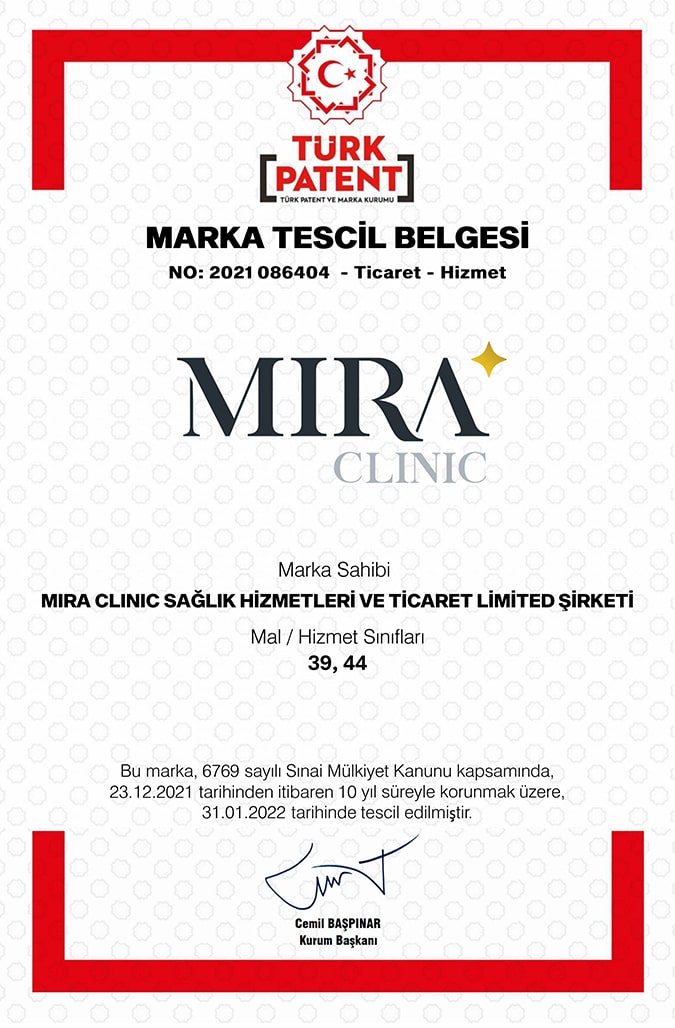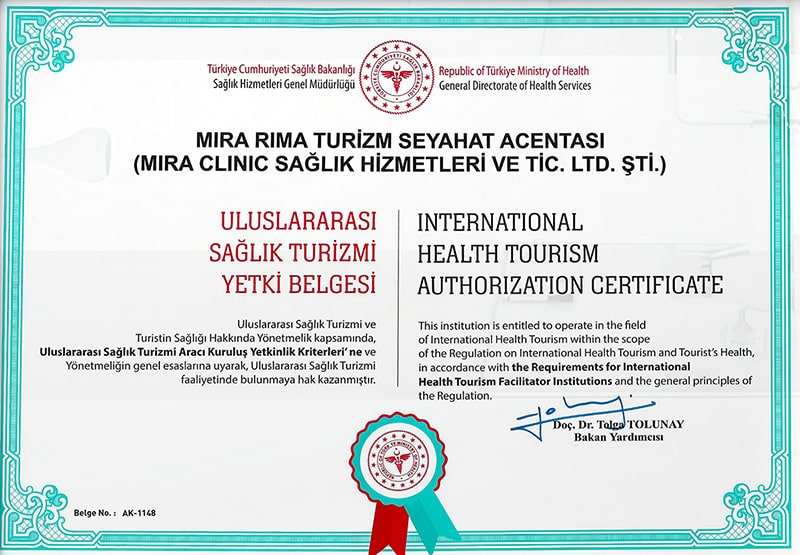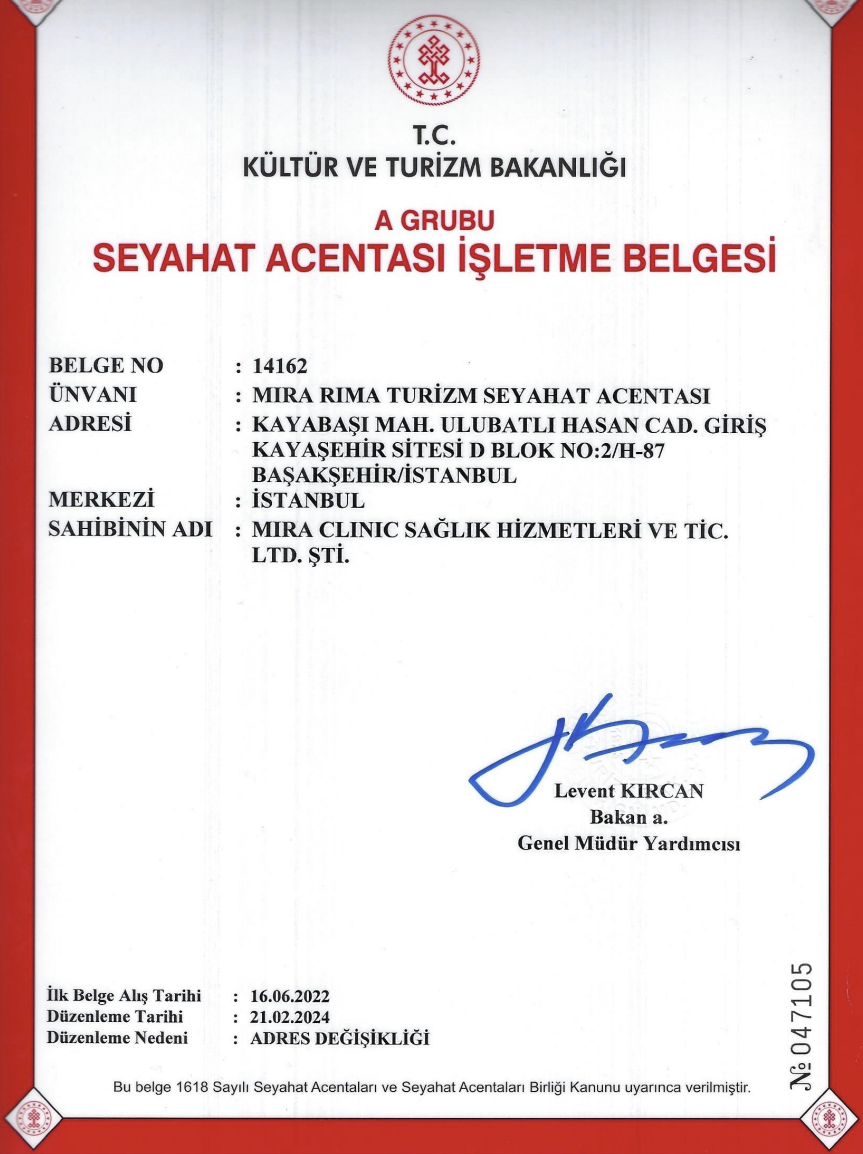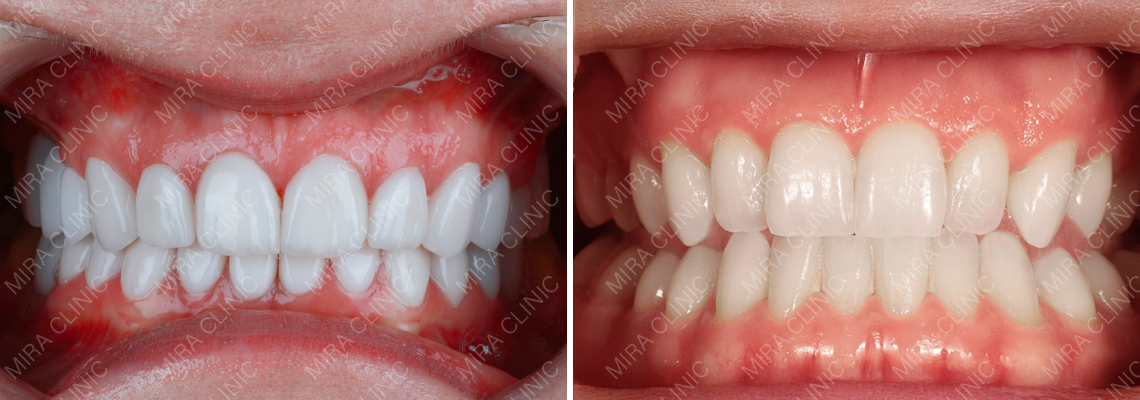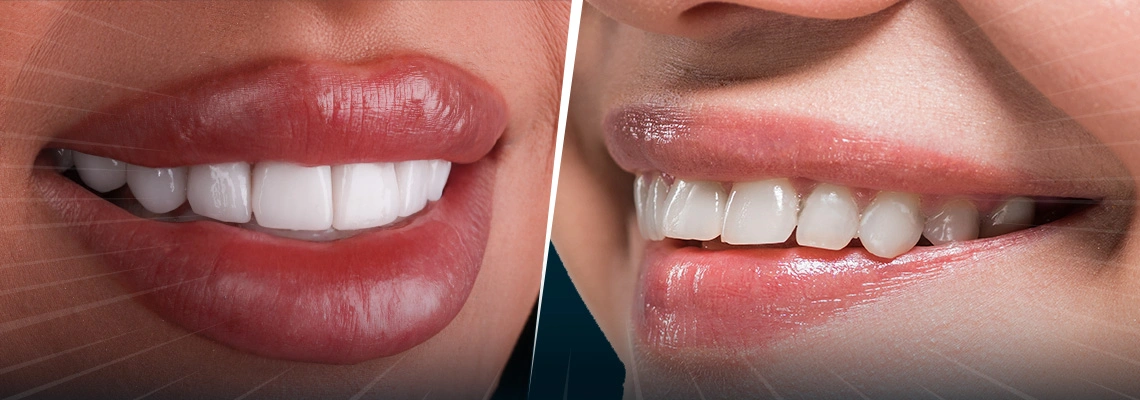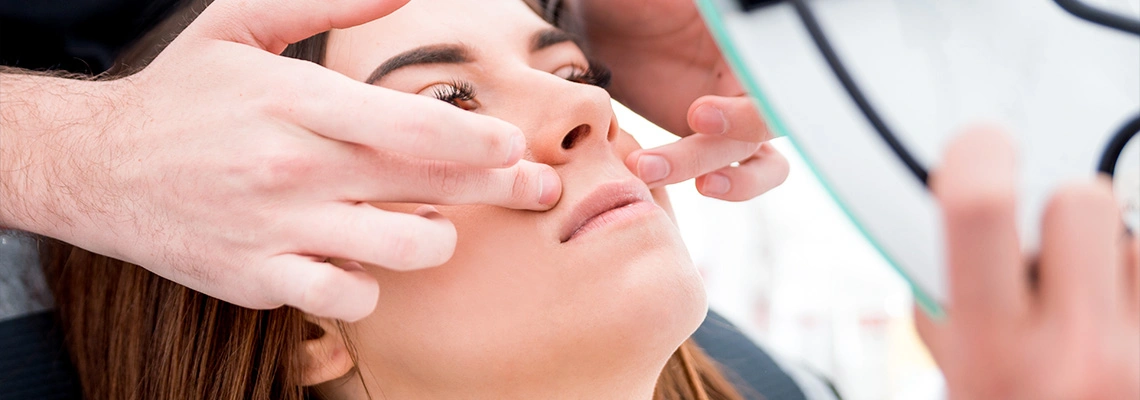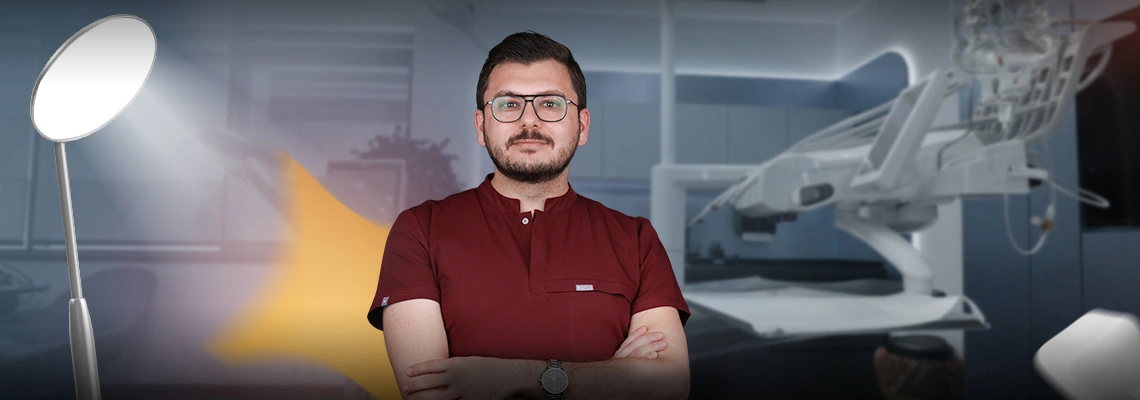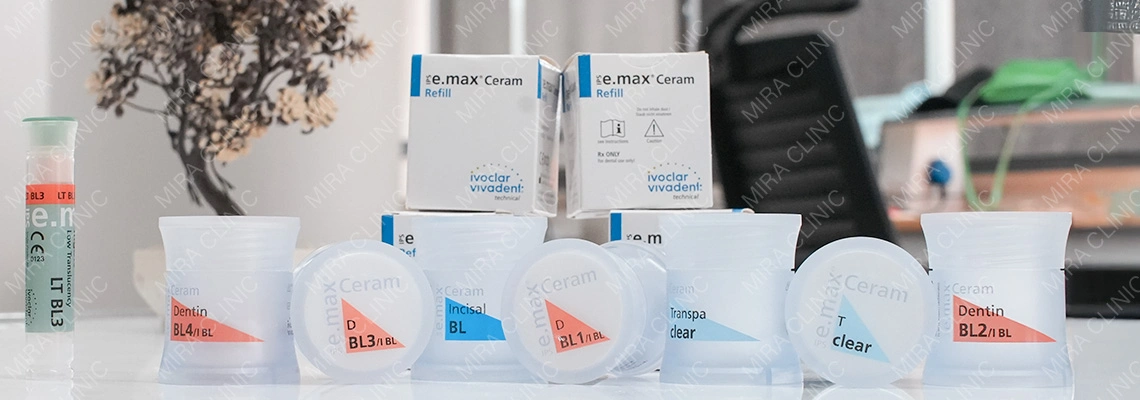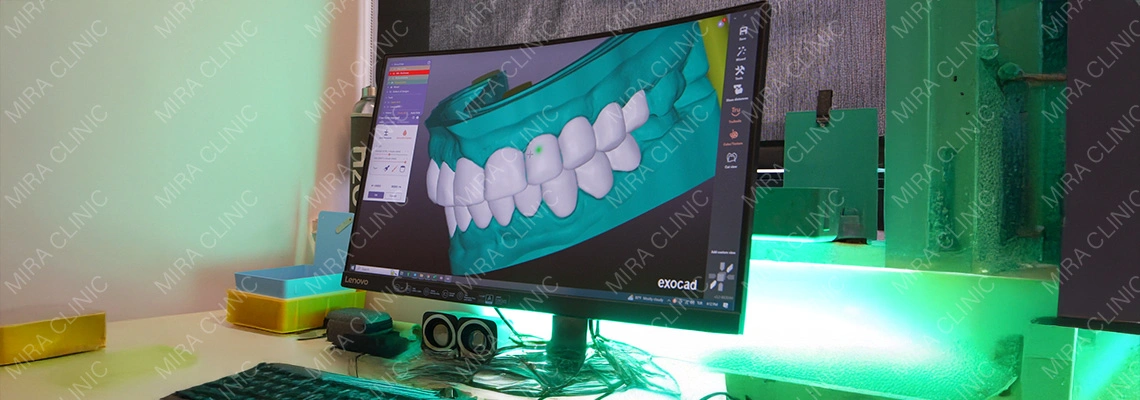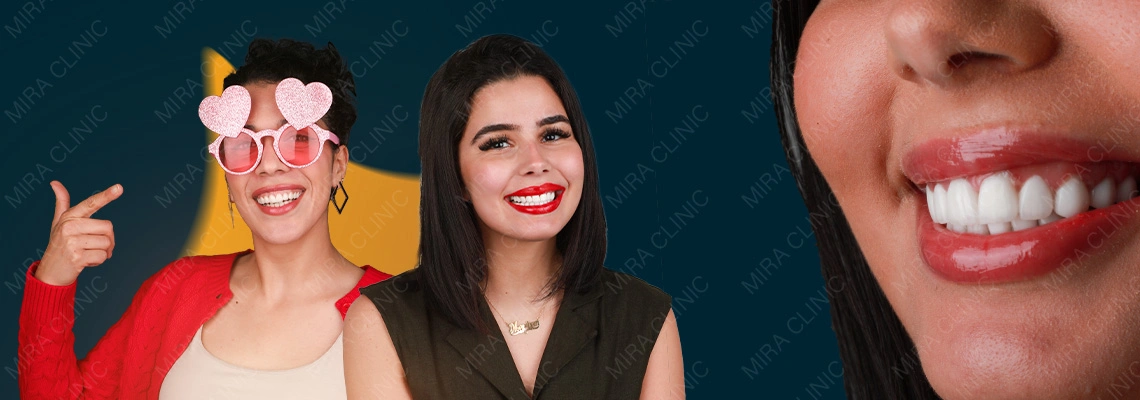What is Zirconia Crown in Turkey? In order to overcome the shortcomings of several dental prosthodontics, recent dental treatment procedures tend to use zirconium crown as one of the most updated dental restorations. The following article discusses this promising dental zirconia crown in Turkey with its most prominent pros and cons.
Table of contents
- What is the zirconia crown?
- How is the zirconia crown made?
- What are the goals of zirconia crowns?
- Zirconia crown advantages and disadvantages
- Is zirconium crown safe?
- Are zirconium crowns strong?
- Can zirconia crown crack or stain?
- Can zirconia crowns be whitened?
- Can a zirconia crown be removed?
- How long can zirconia crown last?
- Is The zirconia crown better than porcelain?
- Zirconia crown allergy symptoms
- How much does the zirconia crown cost in Turkey?
- After zirconia crown installation
What’s the zirconia crown?
The main dental parts are the crown which is apparent in the oral cavity, and the root which is hidden in the bones of the jaws. As a result of many medical and dental issues the crown may need replacement. In such cases, synthetic alternatives are recommended by dentists. Several materials are used in the fabrication process to produce a prosthodontic that is inert in the oral cavity environment, and at the same time resembles the natural tooth. Zirconia crown is one of the most recent of these replacements that is efficiently proven.
Related articles:
- Hollywood smile in turkey 2022
- My experience with Hollywood smile in Turke
- Dental veneers FAQs
- Veneers in Turkey 2022
- Dental prosthesis in turkey
- All you need to know about cosmetic dentistry in Turkey
- A dental implant cost in Turkey 2022
- The Cost of Cosmetic Dentistry in Turkey 2022
- How to choose the best dentist in Turkey
How is the zirconia crown made?
It is crucial to consider that ceramic restorations made of zirconium oxide are not in one kind, but rather they could be in the form of full-contour zirconia or zirconia framework with porcelain or glass mask.
Full contour zirconia, also called “monolithic restoration”, consists of ceramic material merely. Such restoration is more recommended in the posterior region out of its high strength.
Some staining can be used for this kind of restoration for better matching with the adjacent teeth.
On the other hand framework zirconia with outer porcelain or glass layer are more used in the zirconia crowns for anterior teeth. This is due to the matching with the natural looking of the teeth in terms of color and translucency.
What are the goals of the zirconia crown?
Using zirconia crowns in dental treatment has fulfilled many treatment aims:
- Protecting weak teeth from fractures and injuries.
- Improving the esthetic appearance of the teeth.
- Covering tooth anomalies, misshapes, and internal discolorations.
- Offering an upper cap to cover dental implants and weak RCT-treated teeth.
- Treating occlusal problems by improving the crossbite and restoring worn-down teeth.
- Used in producing a perfect Hollywood smile.
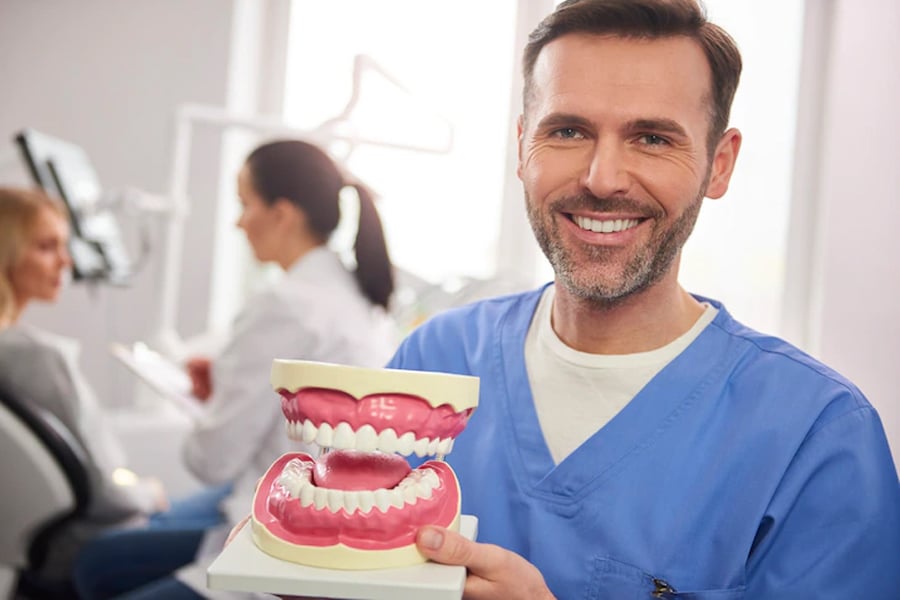
Zirconia crown advantages and disadvantages
Having a crown made of any material other than natural tooth structure means having inevitable side effects alongside the privileges of that material.
Zirconia crowns are not an exception, some of their privileges are listed below:
- longevity: among different dental crown alternatives, zirconium has a relatively long lifespan, Which makes it a good choice for young patients.
- Biocompatibility: according to recently published articles, zirconia has proved acceptable bio-compatibilities and has less probability to cause cytotoxicity.
- Appearance: ceramic prosthodontics have a noticeable resemblance with the looking of the natural teeth as they could represent fine anatomical structures.
- Strength: in addition to the good looking of zirconia crowns, they occupy this level in dental treatment because of the high strength and split resistance they have been shown in comparison with other glass and composite restorations.
- Same-day procedure: among a very few options zirconia crowns can be manufactured in the dental clinic without the need for dental laboratory procedures. Recent technologies like CAD/CAM can be used to offer a single-visit zirconia crown treatment.
Zirconia crown side effects:
The main disadvantages of dental crowns made of zirconia are related to:
- Translucency and color matching issues: although zirconium crowns are aesthetic dental restorations, they still have issues due to its high opaqueness relative to the natural tooth. That makes color matching of zirconia crowns not easy in many cases. As a result, many laboratories tend to coat these types of crowns with more translucent material to improve their appearance, particularly for zirconia crowns for front teeth.
- Wear of opposite teeth: due to the high stiffness and strength of zirconium, occluding with natural teeth can cause wearing of opposite teeth mainly for patients who are suffering from teeth grinding.
Is zirconium crown safe?
Any material to be used inside the oral cavity has to be safe, although some of the materials that have been used for a while in dental treatment cause some health problems. In the case of zirconia crowns, zirconium showed high biocompatibility and a lower probability to stimulate an inflammatory reaction or immunological response.
Are zirconium crowns strong?
During the chewing process of the food, high loads can be applied to the teeth, particularly teeth in the back. So, Using zirconia crowns in the posterior teeth area is a clear sign of their high strength and endurance. As a result, dentists do not have to remove more natural tooth structures during tooth preparation, as 0.5 to 1.5 mm preparation thickness is considered enough room for zirconia in the posterior teeth. Which preserves more natural tooth structure.
Can zirconia crown crack or stain?
Esthetic restoration is affected largely by the type of food and dental hygiene routine the patient follows. Chewing very hard objects or relying on tooth-staining diets can lead the zirconia crown to be stained or cracked. That being said, zirconia crowns consider very stable prostheses that can tolerate occlusal forces and normal chewing pressure.
Can zirconia crowns be whitened?
Teeth bleaching materials and techniques are designed to affect natural tooth structures. As a result, the whitening procedure does not affect synthetic dental restorations, veneers, crowns, or bridges including zirconia crowns.
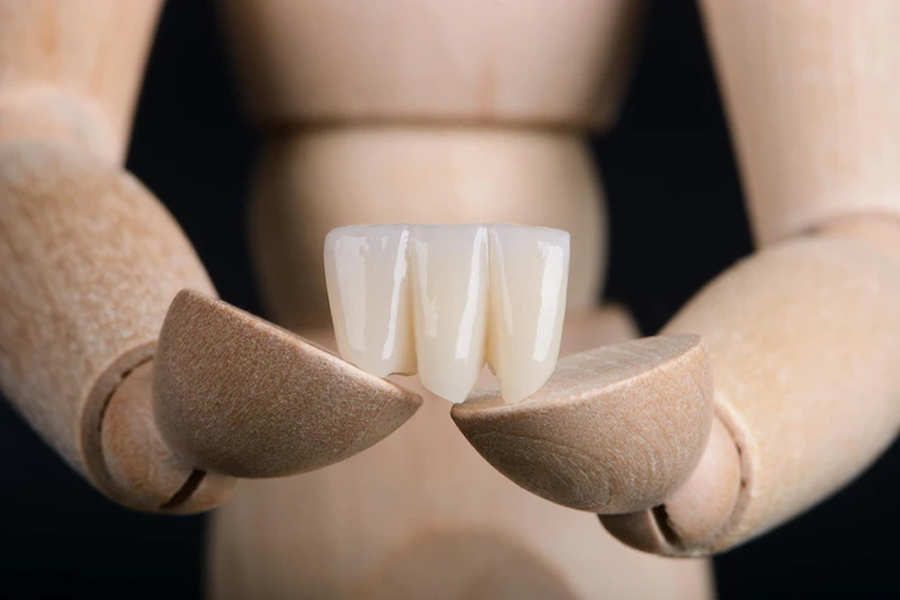
Can a zirconia crown be removed?
Although the zirconia crown considers a permanent crown and cemented on the tooth structure with permanent cement, it can be removed due to many reasons for example:
- Poor isolation through the cementing process.
- Use a non-suitable cement that can be eroded through time.
- Use the crowns to bite or chew very hard things
- Also, poor oral hygiene can cause crown displacement.
- In some cases, the dentists need to remove the crown for treatment reasons, for example making RCT treatment for the teeth.
How long can zirconia crown last?
Zirconia as a ceramic restoration is considered the most durable material in the oral cavity. The average longevity of zirconia crowns is between 5-15 years. The lifespan depends immensely on oral hygiene status and type of occlusion. With continual care and following instruction, the longevity of zirconia crowns will increase directly.
Zirconium crowns vs porcelain crowns
Is zirconia crown better than porcelain? This is one of the most common questions that occupy both dentists and patients. Although both are used in dental clinics separately, a combination of the zirconia framework with a superficial layer of porcelain is also a good choice for many cases. The main differences between the two popular prosthodontics are:
- Wearing the opposing teeth: porcelain has shown a higher percentage of opposing teeth wearing than zirconia. The latter has been proven to cause less damage, as a result, many dentists make their clinical decisions in favor of zirconia.
- Material’s opacity: the opacity of zirconia makes color matching a difficult step, particularly in the anterior areas. In such cases, many dentists tend to combine both most recent choices. At the same time, the probability of porcelain chipping is higher in comparison with zirconia.
- Cost: porcelain crowns are more suitable for lower treatment budgets, but it has considerable drawbacks that include lower strength, causing an allergic reaction, and discoloration. that make zirconia crowns the recommended dental treatment choice for many patients.
Zirconia crown allergy symptoms
Although Zirconia is a biocompatible material that can be used especially in the case of porcelain or metal allergy. Some allergic symptoms can appear in the oral cavity like redness or swelling. Some researchers said that these symptoms referred to the type of cement that has been used, not the zirconia itself.
How much does the zirconia crown cost in Turkey?
is popular that zirconia crowns are a little expensive relative to other dental restorations. Nevertheless, the average cost of zirconium crowns in Turkey is suitable in comparison to European countries or USA. The cost of zirconia crowns in Turkey ranges between $1,000-$1500. Zirconia crown price in Turkey depends on the type of the crown and the experience of the dentist.
After zirconia crown installation:
Dental zirconia crown needs a consistent oral hygiene routine that includes daily toothbrushing and flossing with special care to the prosthesis area by using suitable cleaning instruments. following the routine will ensure an increase in zirconia crown longevity.
Resources
- Tooth-colored CAD/CAM monolithic restorations
- Tooth-colored CAD/CAM monolithic restorations - PubMed (nih.gov)
- What You Need to Know About Dental Crowns Made from Zirconia
- Zirconia Crown Benefits, Disadvantages, Costs, Other Options (healthline.com) Preparation Guidelines for Full Zirconia Crowns - Backer Dental (backerdentallab.com)
- What Is a Zirconia Crown?
- All You Need to Know About Zirconia Crowns (webmd.com) History of Zirconia in Dentistry | Keating Dental Lab | #1 USA Dental Lab
- Allergic Reaction to Zirconia Ceramic Bridge Cementation Using a Dental Adhesive Resin Cement: a Case Report
- (PDF) Allergic Reaction to Zirconia Ceramic Bridge Cementation Using a Dental Adhesive Resin Cement: a Case Report (researchgate.net)
- Cytotoxicity and biocompatibility of Zirconia (Y-TZP) posts with various dental cements
- Cytotoxicity and biocompatibility of Zirconia (Y-TZP) posts with various dental cements - PMC (nih.gov)
- Preparation Guidelines for Full Zirconia Crowns
- Preparation Guidelines for Full Zirconia Crowns - Backer Dental (backerdentallab.com)
- Can dental crowns be whitened?
- Can Dental Crowns be Whitened? (nofrillsdental.com)
